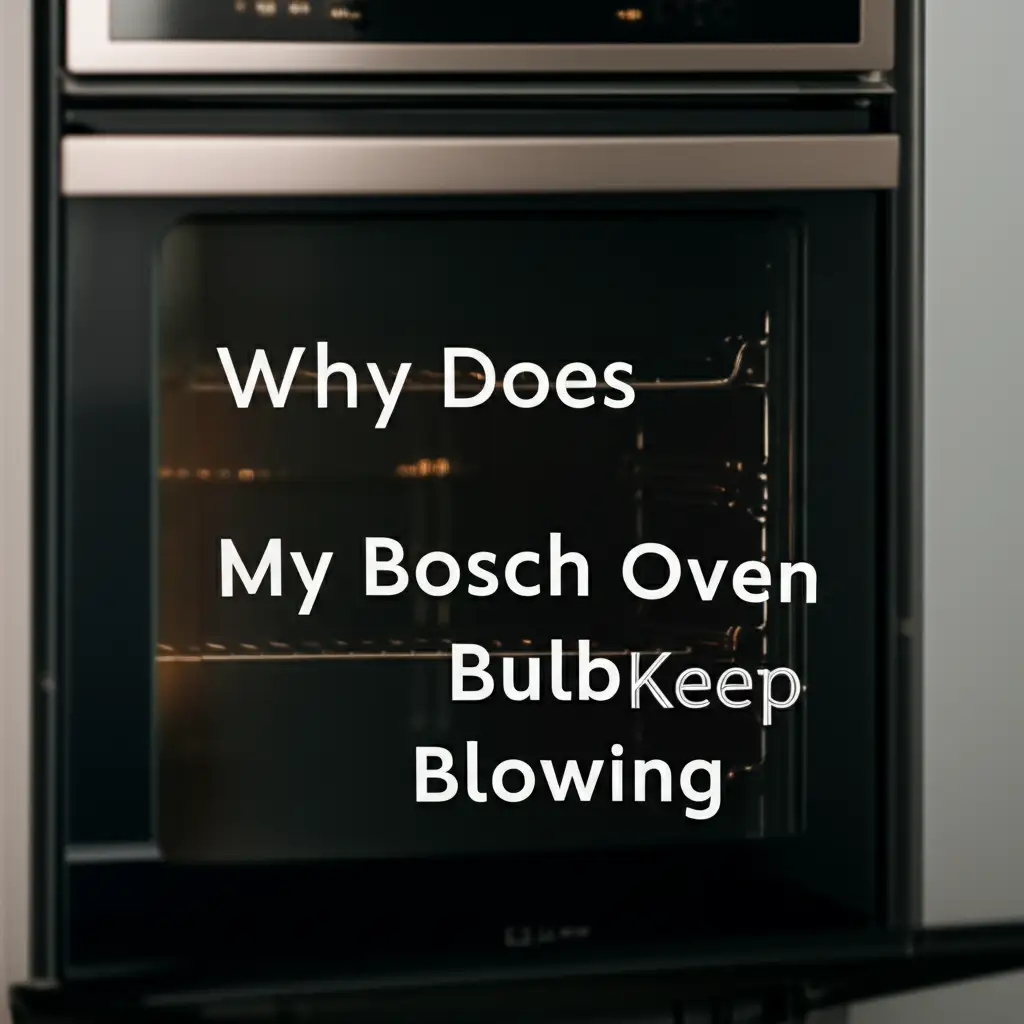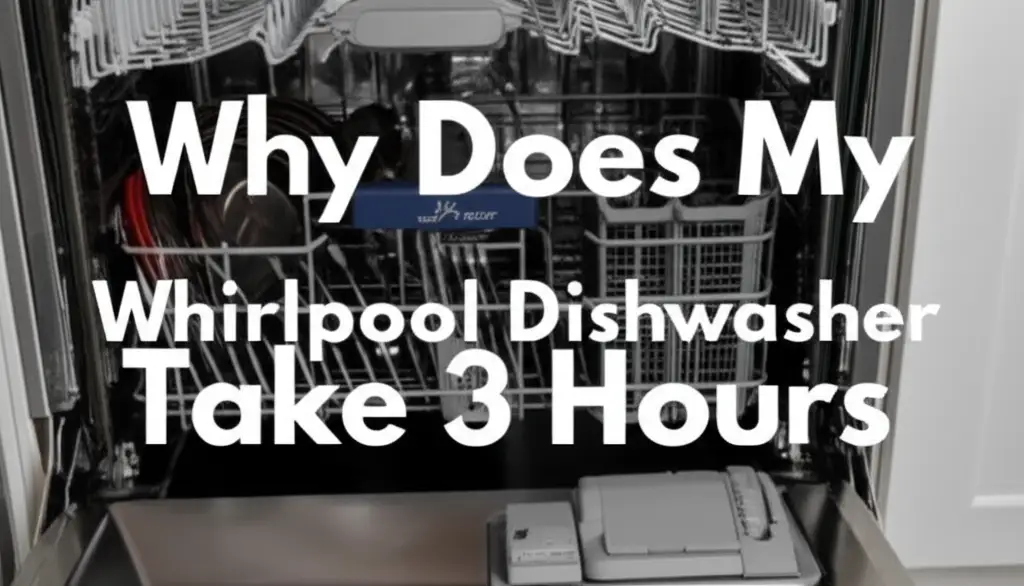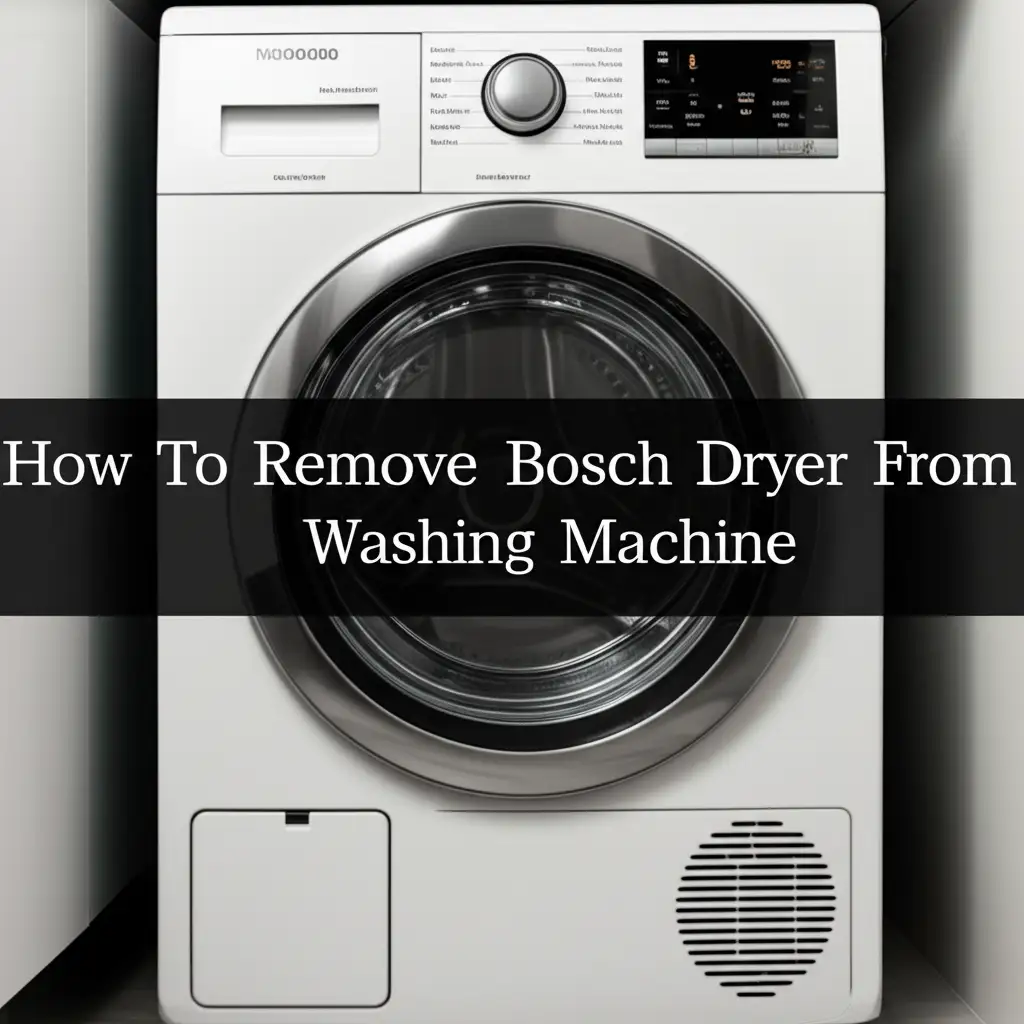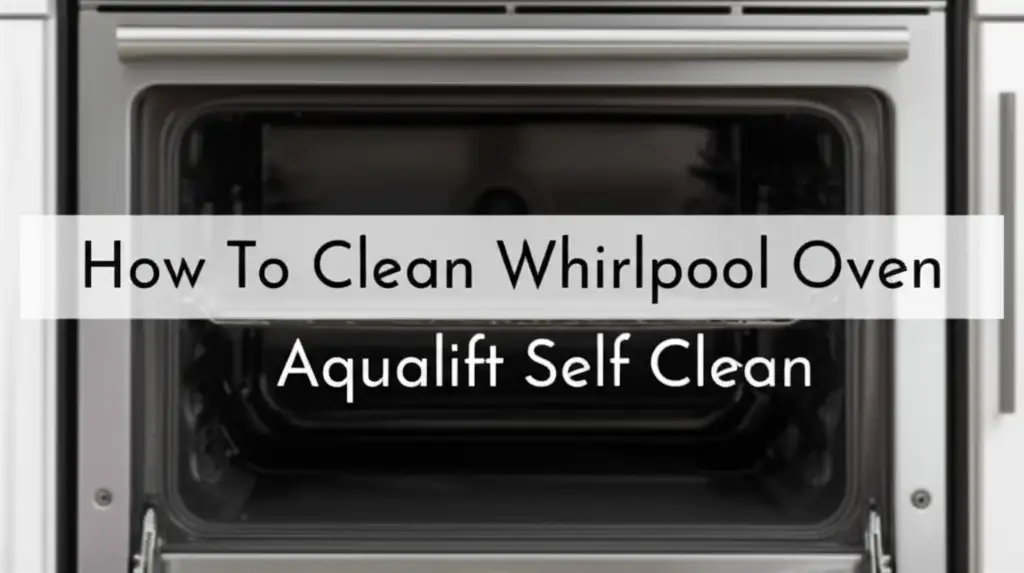· Todd Martin · Appliance Maintenance · 20 min read
Why Does My Bosch Oven Bulb Keep Blowing

Why Does My Bosch Oven Bulb Keep Blowing
Have you ever opened your Bosch oven door, ready to check on a delicious meal, only to find the interior plunged into darkness? It is a common problem when your oven bulb keeps blowing. This issue can be incredibly frustrating. I know the feeling. A constantly failing oven light interrupts your cooking flow and raises questions about your appliance’s health. You are not alone in wondering, “Why does my Bosch oven bulb keep blowing?” Many homeowners face this recurring annoyance. This comprehensive guide will explore the primary reasons behind persistent Bosch oven bulb failures. We will cover everything from incorrect bulb types to electrical problems and environmental factors. My goal is to help you diagnose the root cause and provide practical solutions. This way, you can keep your Bosch oven well-lit for years to come.
Takeaway
- Use the Correct Bulb: Always replace your Bosch oven bulb with a high-temperature, oven-specific bulb of the correct wattage and voltage.
- Check Electrical Connections: Inspect the bulb socket and oven’s internal wiring for loose connections, corrosion, or damage.
- Monitor Power Supply: Be aware of voltage fluctuations or power surges in your home, which can stress electrical components.
- Ensure Proper Installation: Avoid over-tightening the bulb or touching the glass with bare hands, as this can lead to premature failure.
- Address Heat and Vibration: Understand how the oven’s high-heat environment and routine door movements affect bulb lifespan.
- Consult a Professional: If issues persist after troubleshooting, a qualified technician can diagnose complex electrical or internal problems.
The primary reason your Bosch oven bulb keeps blowing often relates to using the wrong type of bulb, which cannot withstand the oven’s high temperatures and vibrations. Other common causes include unstable voltage, loose or corroded socket connections, and internal wiring issues within the oven. Addressing these factors ensures a lasting light.
Identifying the Right Replacement Bulb for Your Bosch Oven
One of the most frequent reasons a Bosch oven bulb keeps blowing is using the wrong type of replacement. Many people assume any light bulb will work, but oven environments are unique. These spaces reach very high temperatures. A standard household bulb simply cannot handle the extreme heat inside an oven. They are designed for cooler environments and will quickly burn out or shatter.
Bosch ovens, like most modern ovens, require special bulbs. These bulbs are heat-resistant. They are built to withstand temperatures often exceeding 500°F (260°C). Check your oven’s manual for the exact specifications. The manual will tell you the required wattage and voltage. It will also specify the base type needed. Using a bulb with incorrect wattage can also cause problems. A bulb with too high wattage can overload the circuit. A bulb with too low wattage may burn out faster due to excessive heat exposure for its rating.
Always look for bulbs labeled “oven bulb” or “appliance bulb.” These bulbs usually have reinforced filaments and a more robust glass construction. I always recommend buying a genuine Bosch replacement bulb if possible. If not, choose a reputable brand that explicitly states it is for ovens. Confirm the voltage matches your home’s supply, typically 120V in North America. This simple check can save you a lot of hassle. Proper selection ensures the bulb can endure the harsh oven conditions. Changing your Bosch oven light bulb properly starts with the right bulb.
Types of Oven Bulbs
- Halogen Bulbs: Many modern Bosch ovens use halogen bulbs. These are compact and offer bright light. They are also very heat resistant.
- Incandescent Bulbs: Older Bosch models might use traditional incandescent oven bulbs. These are specifically designed for high temperatures.
- LED Bulbs: While energy-efficient, standard LED bulbs are not suitable for oven use. Some specialized high-temperature LED oven bulbs are emerging, but always check their temperature rating. They are generally still less common in ovens due to heat limitations.
The base type of the bulb is also important. Oven bulbs typically come with screw-in (E14 or E27) or bayonet (G9) bases. Make sure the new bulb’s base matches the old one. Installing the correct bulb type is the first and most critical step. It directly impacts the lifespan of your oven light. Do not skip this important consideration.
Understanding Voltage Fluctuations and Electrical Issues
Electrical problems in your home can often be a hidden culprit behind a Bosch oven bulb that keeps blowing. Light bulbs are sensitive to consistent voltage. They expect a steady flow of electricity. When this flow is unstable, it can significantly shorten a bulb’s life. Voltage fluctuations are common occurrences in homes. These can include minor dips or surges. Small power surges might not be noticeable to you. However, they can put immense stress on electrical components, including light bulb filaments.
A power surge is a brief spike in voltage. It can happen for several reasons. Lightning strikes, power grid issues, or even turning on large appliances nearby can cause surges. When a surge occurs, too much electricity rushes through the bulb. This rapid influx of power can instantly burn out the filament. Repeated, smaller surges weaken the filament over time. This makes the bulb more prone to blowing prematurely. I have seen many cases where unexplained bulb failures trace back to these electrical irregularities.
Your Bosch oven is wired into your home’s electrical system. If there are issues with your home’s wiring, they can affect the oven bulb. Old or faulty wiring can lead to unstable voltage. Sometimes, a dedicated circuit for your oven is important. Sharing a circuit with other high-power appliances might cause voltage drops when those appliances turn on. This fluctuating power can wear down the oven bulb. If your Bosch oven often trips the breaker, it signals a more serious electrical issue. This needs immediate attention.
Common Electrical Causes
- Loose Wiring: Connections inside your home’s electrical panel or within the wall outlet can be loose. This leads to inconsistent power delivery to the oven.
- Aging Electrical System: Older homes might have outdated wiring that cannot handle modern appliance loads. This can cause voltage instability.
- External Power Grid Issues: Problems with your utility company’s power supply can also cause fluctuations. This might affect all appliances in your home.
You might consider using a surge protector for your entire home if you experience frequent power issues. This device helps stabilize the voltage. It protects sensitive electronics from sudden spikes. While you cannot directly plug an oven into a standard surge protector, addressing whole-home electrical stability is key. If you suspect your home’s wiring is the problem, consult a licensed electrician. They can perform a voltage test. They can also check your wiring for faults. Ensuring a stable power supply is crucial for all your appliances, including your Bosch oven bulb.
Inspecting the Oven Bulb Socket and Internal Wiring
If your Bosch oven bulb keeps blowing, and you are sure you are using the correct type, the problem might lie closer to home: the bulb socket itself or the oven’s internal wiring. These components are vital for delivering power directly to the bulb. Any defect here can cause recurring issues. The oven bulb socket is where the bulb screws in. It must provide a secure and clean connection. Over time, these sockets can develop problems.
Corrosion is a common issue for oven sockets. The high heat and moisture (from cooking steam) inside the oven create a harsh environment. This environment promotes corrosion on the metal contacts within the socket. When corrosion builds up, it obstructs the flow of electricity. This creates resistance. This resistance can cause arcing or overheating at the bulb’s base. The extra heat and unstable current will quickly burn out the bulb. I have seen corroded sockets cause endless frustration. It looks like a simple bulb problem, but it is a deeper electrical issue.
Loose connections are another frequent culprit. The constant vibrations from the oven fan running or the oven door opening and closing can loosen the wires connected to the socket. A loose wire means intermittent power delivery to the bulb. This erratic power supply puts stress on the bulb’s filament. It causes it to heat and cool unevenly. This leads to premature failure. You might even notice the light flickering before it eventually goes out.
Checking for Socket and Wiring Issues
- Visual Inspection: Before doing anything, make sure the oven is unplugged or the circuit breaker is off. Carefully remove the oven bulb. Look inside the socket. Do you see any discoloration, burn marks, or rust? Are the metal contacts shiny or dull and corroded?
- Tightness of Connections: Gently try to wiggle the socket itself. If it feels loose within its housing, its connections might be compromised. Do not attempt to tighten internal wiring unless you are qualified.
- Professional Help: If you see significant corrosion, burnt plastic, or very loose wires, it is best to call a qualified appliance technician. They have the tools and expertise to safely diagnose and repair internal oven wiring.
Sometimes, the internal wiring leading to the socket can be faulty. This might involve frayed wires, pinched wires, or insulation damage. These issues are less common but more serious. They can cause short circuits. A short circuit will trip your breaker or blow fuses more broadly. It can also cause the bulb to blow instantly. Resetting your Bosch oven might clear some minor errors, but it will not fix a physical wiring issue. Addressing socket and wiring issues requires careful attention. It may need professional assistance. A faulty socket or wiring can be dangerous if not repaired correctly.
Impact of Oven Environment and Usage on Bulb Lifespan
The unique environment inside your Bosch oven plays a significant role in how long its bulb lasts. Unlike standard light fixtures, an oven is a place of extreme heat, frequent temperature changes, and constant vibration. These factors put immense stress on the delicate components of a light bulb. Understanding these environmental impacts helps explain why oven bulbs are more prone to failure than other household lights.
High temperatures are the most obvious stressor. When your oven preheats and cooks, the internal temperature can easily climb to 400-500°F (200-260°C) or even higher during self-cleaning cycles. Even though oven-specific bulbs are designed to withstand these temperatures, prolonged exposure still affects their lifespan. The intense heat causes the filament inside the bulb to weaken over time. It makes it more brittle. Each heating and cooling cycle adds a bit of wear and tear. Imagine constantly heating a metal wire to very high temperatures and then letting it cool. It eventually fatigues. This is what happens to your bulb’s filament.
Vibration is another often-overlooked factor. Every time you open or close the oven door, the oven experiences a slight jolt. This constant movement creates vibrations that travel through the appliance. Your oven also has an internal fan that operates during cooking and cooling. This fan generates continuous, subtle vibrations. These vibrations can cause the bulb’s filament to rattle. Over time, this rattling can cause the filament to break. It is similar to how road vibrations can shorten the life of car headlights. A delicate filament cannot withstand constant microscopic movements indefinitely.
Mitigating Environmental Stress
- Proper Bulb Installation: Ensure the bulb is screwed in snugly but not overtightened. A loose bulb will vibrate more. Over-tightening can crack the socket or bulb base.
- Gentle Door Operation: While you cannot completely eliminate door movements, avoid slamming the oven door shut. A gentler close reduces the immediate shock to the bulb.
- Allow Cooling: If possible, let the oven cool down somewhat before replacing a bulb that just blew. Working with a hot oven is unsafe. The immediate temperature change might also stress a new bulb if inserted into a very hot environment.
Frequent use of the oven also naturally contributes to bulb wear. An oven that is used daily will experience more heat cycles and vibrations than one used only once a week. This means its bulb will likely need replacing more often. While you cannot change your cooking habits, recognizing this is important. It helps manage expectations about bulb lifespan. The oven’s tough environment demands a tough bulb. This is why using the correct, high-temperature-rated bulb is so important.
Common Installation Mistakes Leading to Blown Bulbs
Even with the right bulb in hand, improper installation can significantly reduce its lifespan or cause it to blow instantly. Many people unknowingly make mistakes during the replacement process. These errors can put undue stress on the bulb or its connections. Understanding these common pitfalls will help ensure your new Bosch oven bulb lasts as long as possible. I have seen seemingly minor missteps lead to persistent light issues.
One very common mistake is overtightening the bulb. When you screw a new bulb into the socket, it is natural to want to ensure it is secure. However, applying too much force can damage the bulb in several ways. Overtightening can crack the glass base of the bulb. It can also distort the metal contact points on the bulb or within the socket. This can create a poor electrical connection. A poor connection leads to arcing and overheating at the bulb’s base. This excessive heat will quickly burn out the filament. Screw the bulb in until it is snug. Do not force it. Just a quarter turn past finger-tight is usually sufficient.
Another critical error is touching the glass of the bulb with bare hands. This applies especially to halogen bulbs, which are common in Bosch ovens. Our skin produces natural oils. When these oils transfer to the bulb’s surface, they create hot spots when the bulb heats up. These hot spots can cause the glass to expand unevenly. This leads to cracking or shattering. The oils also interfere with the bulb’s ability to dissipate heat efficiently. This causes the filament to burn out faster due to excessive internal temperature. I always recommend using a clean cloth or gloves when handling a new bulb.
Proper Installation Techniques
- Turn Off Power: Always disconnect power to the oven before changing the bulb. Unplug the oven or turn off the circuit breaker. Safety is paramount.
- Cool Down Oven: Allow the oven to cool completely. Replacing a bulb in a hot oven is dangerous and can damage the new bulb.
- Clean the Socket: Before inserting the new bulb, gently wipe down the inside of the socket with a dry cloth. Remove any dust or debris. If you see corrosion, you may need a small brush to clean it.
- Handle with Care: Use a clean, dry cloth or gloves to handle the new bulb. Avoid touching the glass directly.
- Gentle Tightening: Screw the bulb in clockwise until it feels snug. Do not overtighten.
Ensuring the bulb is seated properly is also important. It should sit flush in the socket. If it is crooked or not fully engaged, it can lead to an intermittent connection. This inconsistent power delivery causes the filament to wear out quickly. Take your time during installation. A few extra moments of careful attention can save you from replacing the bulb again soon. Proper technique is just as important as having the correct bulb for a long-lasting light.
Advanced Troubleshooting and When to Call a Professional
If you have tried all the common fixes—ensuring the right bulb, checking for obvious electrical issues, and installing it correctly—and your Bosch oven bulb still keeps blowing, it is time for advanced troubleshooting. At this point, the problem likely stems from a more complex internal component failure or a hidden electrical fault. These issues often require diagnostic tools and the expertise of a professional appliance technician.
One advanced problem could be a faulty oven light circuit. Your oven has a dedicated circuit for the light. This circuit includes wiring, possibly a transformer (if it uses a lower voltage bulb), and connections within the main oven control board. If any part of this circuit is damaged, it can send incorrect voltage or inconsistent power to the bulb. This will cause repeated failures. Diagnosing a faulty circuit requires testing continuity and voltage at various points. This should only be done by someone with electrical training. I do not recommend attempting to test live circuits yourself.
Another possibility is an issue with the oven’s main control board. While less common, a malfunctioning control board can sometimes misregulate power to the light circuit. This might lead to over-voltage conditions specifically affecting the bulb. Symptoms of a failing control board often extend beyond just the light. You might notice other erratic behavior. This could include incorrect temperature readings or issues with oven functions. However, sometimes a minor component failure on the board can isolate to the light circuit. This makes diagnosis tricky.
Signs It Is Time to Call a Professional
- Persistent Blowing: If multiple new, correct bulbs blow out quickly after installation.
- Electrical Smells or Sounds: If you smell burning plastic or hear buzzing/crackling sounds from the oven (especially near the light or electrical panel).
- Breaker Trips Regularly: If the oven causes your circuit breaker to trip whenever the light tries to turn on, or frequently for other reasons. This indicates a serious electrical short. If your Bosch oven keeps tripping the breaker, it needs professional attention.
- No Power to Socket: You have confirmed power to the oven, but no voltage reaches the bulb socket when tested with a multimeter.
- Visible Damage: If you see burnt wires, melted plastic, or significant corrosion inside the oven beyond the bulb socket.
A qualified technician can use specialized equipment to test voltage at the socket, check the continuity of internal wiring, and diagnose problems with the control board. They understand the intricacies of Bosch oven electrical systems. They can identify subtle issues that are not apparent to the untrained eye. Attempting complex electrical repairs yourself can be dangerous. It can also void your oven’s warranty. Investing in a professional diagnosis saves you time, money, and ensures safety. They can determine the exact cause and perform a lasting repair.
Preventative Measures for a Long-Lasting Oven Bulb
After understanding why your Bosch oven bulb might be blowing, it is helpful to know how to prevent future issues. Taking a few proactive steps can significantly extend the life of your oven light. This saves you the hassle and cost of frequent replacements. Prevention is always better than continuous repair. These measures focus on correct usage, maintenance, and smart choices.
Firstly, always keep a spare, correct oven bulb on hand. It sounds simple, but having the right replacement ready prevents you from grabbing a standard bulb in a pinch. Remember, a specific high-temperature oven bulb is essential. Buying a multi-pack of the correct bulbs means you are prepared for when one eventually gives out. This small habit ensures you replace with the right type immediately.
Secondly, ensure your oven is cleaned regularly, especially around the light assembly. Grease and food splatters can accumulate around the bulb housing. This grime can act as an insulator. It traps heat around the bulb. This excess heat can contribute to premature bulb failure. When cleaning your oven, gently wipe down the glass cover over the bulb and around the socket area. Make sure to use oven-safe cleaners. Always ensure the oven is cool and unplugged before cleaning. This simple maintenance step improves heat dissipation around the bulb.
Tips for Longevity
- Handle with Care: Always use a clean cloth or gloves when installing a new bulb. Avoid touching the glass with bare hands. The oils from your skin create hot spots.
- Tighten Properly: Screw the bulb in firmly but do not overtighten it. Over-tightening can crack the bulb or damage the socket connections.
- Gentle Door Use: Try to avoid slamming the oven door. The vibrations from aggressive door closing can stress the bulb’s filament and reduce its lifespan.
- Monitor Electrical Stability: While you cannot control power grid issues, be aware if your home experiences frequent power fluctuations. If other electronics are failing or flickering, consider consulting an electrician for a home electrical check-up.
Finally, consider the overall health of your oven. A well-maintained oven with functioning components is less likely to stress its light bulb. For instance, if your oven fan is excessively noisy, it might be vibrating more than usual. This extra vibration can affect the bulb. Addressing any other unusual sounds or operational issues with your Bosch oven can indirectly benefit the bulb’s lifespan. By following these preventative measures, you are not just maintaining your oven light; you are also contributing to the overall health and longevity of your Bosch oven.
FAQ Section
Q1: Can a faulty oven fan cause the bulb to blow?
Yes, a faulty oven fan can contribute to the bulb blowing. If the fan is unbalanced or damaged, it can create excessive vibrations inside the oven. These vibrations put mechanical stress on the bulb’s filament, causing it to break prematurely. An improperly working fan might also lead to uneven heat distribution, potentially stressing the bulb more than usual.
Q2: Is it safe to use my Bosch oven if the bulb keeps blowing?
Using your Bosch oven with a constantly blowing bulb is generally safe, as it is a lighting issue, not typically a functional one. However, persistent electrical problems causing the bulb to blow could indicate a deeper, more serious issue. If you notice tripping breakers, burning smells, or flickering lights, stop using the oven and seek professional help immediately to ensure safety.
Q3: How do I know if my Bosch oven bulb is the correct wattage?
Check your Bosch oven’s user manual for the exact wattage and voltage specifications for its oven light. The required wattage is often printed directly on the bulb’s base or packaging. Using a bulb with too high wattage can overload the circuit and cause frequent blowing. A bulb with too low wattage might not handle the heat properly.
Q4: Can a dirty oven bulb housing cause it to blow?
Yes, a dirty oven bulb housing can contribute to the bulb blowing. Accumulated grease and carbonized food particles around the bulb cover or inside the socket can act as an insulator. This traps heat around the bulb, causing it to overheat. This excessive heat can significantly reduce the bulb’s lifespan and cause it to burn out faster.
Q5: How often should a Bosch oven bulb need replacing?
A Bosch oven bulb, especially the correct high-temperature type, should last for a considerable period, often several years with regular use. Frequent replacement (e.g., every few weeks or months) indicates an underlying issue. This suggests problems with the bulb type, electrical supply, installation, or the oven’s internal components.
Q6: Can I use an LED bulb in my Bosch oven?
Standard LED bulbs are not suitable for high-temperature oven environments. They are not designed to withstand the extreme heat. Specialized, high-temperature LED oven bulbs are becoming available. However, you must ensure the specific LED bulb is explicitly rated for oven use and matches your oven’s voltage and wattage requirements. Always check the temperature rating.
Conclusion
A persistently blowing Bosch oven bulb is more than a minor annoyance; it is a clear sign that something is not quite right with your appliance or your home’s electrical system. We have covered the critical reasons why your Bosch oven bulb keeps blowing. This includes using the wrong bulb type, experiencing voltage fluctuations, facing issues with the socket or wiring, and environmental stress. We also looked at common installation mistakes and when to seek professional help. Remember, the solution often starts with ensuring you use a high-temperature, oven-specific replacement bulb of the correct wattage and voltage.
My advice remains consistent: prioritize safety. Always disconnect power before attempting any inspections or replacements. If the problem persists after trying the suggested fixes, or if you suspect deeper electrical issues, do not hesitate to contact a qualified appliance technician. T
hey have the expertise and tools to diagnose and repair complex internal problems safely. By understanding these common causes and implementing the preventative measures discussed, you can restore proper illumination to your Bosch oven. This will ensure your cooking adventures remain bright and uninterrupted. Happy cooking!





